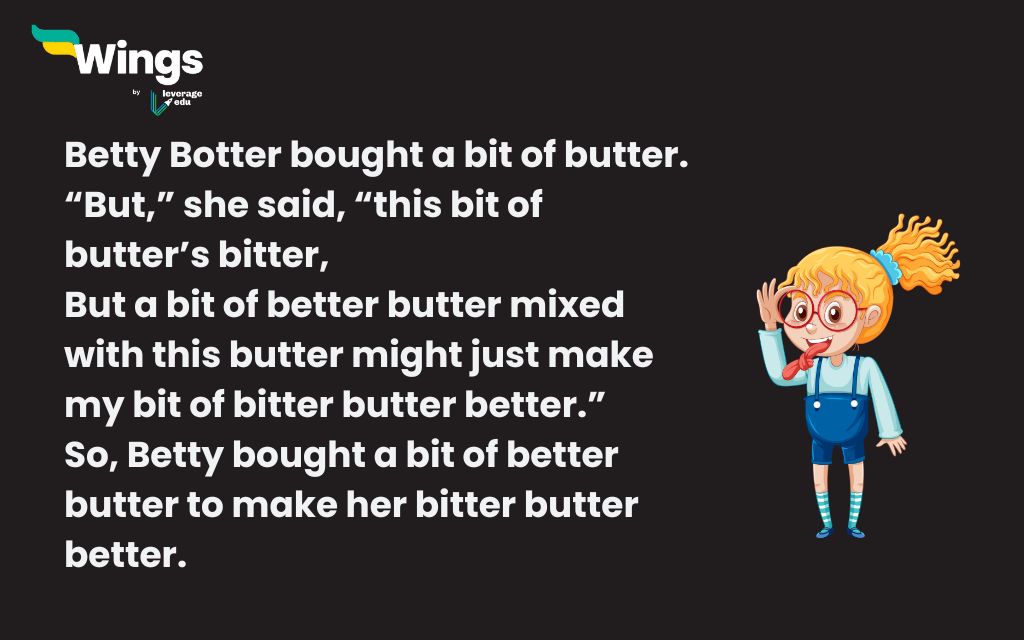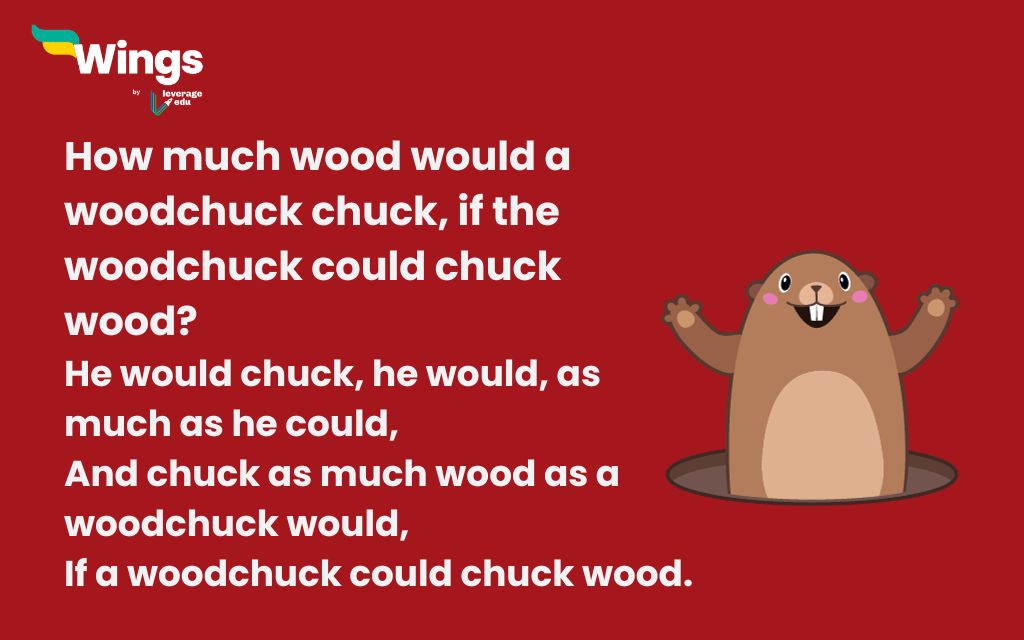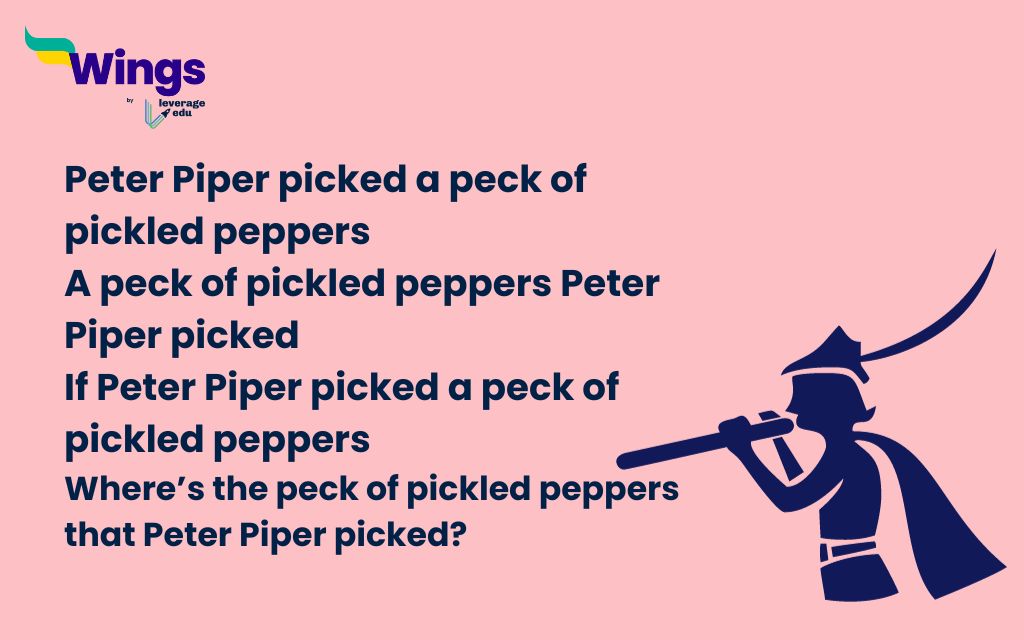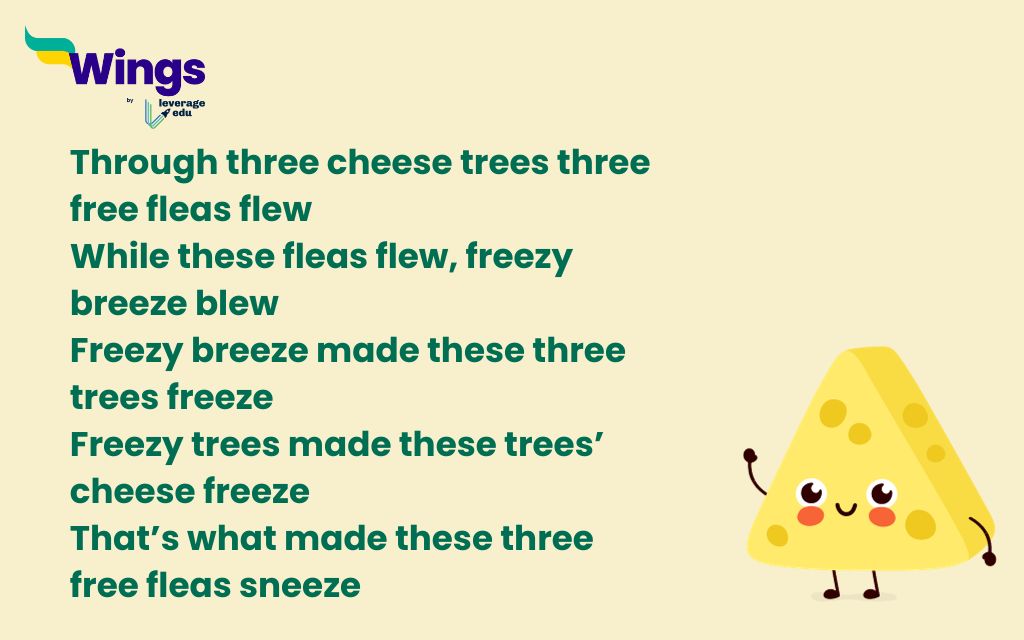Tongue Twister Benefits: When it comes to enhancing language skills, there is no better way to do that than to try and master tongue twisters. This will add to their vocabulary and allow them to learn to pronounce words the right way. There are numerous tongue twisters for kids that allow them to have fun growing their ability to speak well and enhance their vocabulary.
This Blog Includes:
Also Read: Top World’s Hardest Tongue Twisters: For Voice Actors, Students
What are Tongue Twisters?
Tongue Twisters are a combination of similar-sounding sounds, syllables, or words, that are difficult to pronounce quickly without getting tongue-tied. The main objective of tongue twisters is to provide a fun and entertaining way to practice and improve one’s pronunciation, articulation, and fluency in a language.
Examples of Tongue Twisters
Here is the list of a few tongue twisters you can read aloud and enjoy the realm of speaking them.





Benefits of Tongue Twisters For Children
The key benefits of tongue twisters for children are listed below :
👉Tongue twisters are beneficial for children as they assist in learning various consonant sounds.
👉The pronunciation of these challenging phrases helps children develop clear speech.
👉Tongue twisters contribute to improving children’s reading abilities.
👉Children can enhance their word pronunciation skills through practising tongue twisters.
👉Tongue twisters are particularly helpful for children with lisps, aiding them in overcoming this condition.
👉Engaging with tongue twisters encourages children to develop a sense of humour.
👉The use of tongue twisters can contribute to expanding children’s vocabulary.
👉Mastering tongue twisters serves as a beneficial exercise for the brain.
👉Tongue twisters act as a form of mouth exercise, stretching and strengthening facial muscles.
👉Incorporating tongue twisters into games can provide entertaining and enjoyable activities for children.
👉Tongue twisters help children identify and work on sounds that they may struggle with in pronunciation.
Certainly! Here’s a revised version highlighting the advantages of practising English tongue twisters for small school-going children
Advantages of Practising Tongue Twisters
Practising English tongue twisters offers a myriad of benefits to young students, laying a foundation for valuable life skills. Here are a few key advantages:
1. Fosters a love for words: Practicing tongue twisters makes children develop an appreciation for language and words.
2. Enhances understanding of humour: The playful nature of tongue twisters helps children grasp and enjoy humour within language.
3. Boosts confidence: Mastering the challenging sounds and sequences in tongue twisters contributes to building children’s confidence in their linguistic abilities.
4. Expands vocabulary: Regular practice with tongue twisters exposes children to a variety of words, expanding their vocabulary in a fun and engaging way.
5. Improves diction: Pronouncing intricate phrases in tongue twisters enhances children’s diction, refining their ability to articulate words clearly and accurately.
FAQs
Tongue Twisters are a combination of similar-sounding sounds, syllables, or words, that are difficult to pronounce quickly without getting tongue-tied.
The key benefits of tongue twisters are they help children learn consonant sounds, improve pronunciation, enhance reading abilities, expand vocabulary, and develop a sense of humor.
Yes, Tongue twisters are an effective tool in language learning classrooms to enhance pronunciation, vocabulary, and overall language skills.
Hope you understand the concept and where it’s used. Keep an eye on Leverage Edu for more exciting and informative blogs.


 One app for all your study abroad needs
One app for all your study abroad needs












 60,000+ students trusted us with their dreams. Take the first step today!
60,000+ students trusted us with their dreams. Take the first step today!